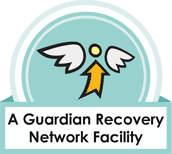It’s not difficult to develop an addiction to alcohol or drugs, but the cosmic irony of it all is that it would be quite difficult to come back from it. We tend to think of addiction as being a moral issue since substance abuse is, by all appearances, a behavior. However, we’ve learned that addiction is actually a brain disease and recovery is quite complicated. For some people, it takes months to get sober while others require a year or more of active addiction treatment before they’re able to break their chemical dependence on mind-altering substances.
Part of the reason why there’s such a discrepancy in the amount of time addicts need to get sober is because there are many different resources available to help people regain their independence. For instance, the numerous twelve-step support groups — Alcoholics Anonymous, Narcotics Anonymous, Sex Addicts Anonymous, and others — have proven to be highly successful, but addiction treatment programs at alcohol and drug rehabs are widely considered to be the most effective. But a successful recovery is about more than support groups and rehab. There are a number of details that are easily overlooked and yet extremely important to recovery, including a person’s goals. Therefore, the following are some tips for goal-setting in recovery, which will ensure a better future.
Set Aside Time To Plan
People are often impulsive with their goals. They think of something at some point during their day-to-day lives, add it to their mental bucket lists, and go on about their business. However, for your goals to be meaningful to you, it’s crucial for you to set aside ample time to think and plan for them. As such, make sure that you take some time — maybe just a few minutes each day — when you can put everything else to the side and focus on your goals, including any progress that’s been made, any changes that you might need to make to your planned goals or any new ones you want to add to your overall life plan.
Start Small And Get Bigger
There’s nothing wrong with being ambitious. In fact, ambition is a very admirable trait. However, some people are particularly susceptible to getting carried away. When they’re thinking about their life goals, they begin to think about their desires, which may get increasingly far-fetched and unattainable. Don’t interpret this as discouragement from setting high-reaching goals, but it’s important to work your way from small, more attainable or achievable goals to the loftier and more demanding goals that will require a prolonged period of effort, perhaps even years.
Involve Loved Ones In Your Ideas
More often than not, setting goals — whether short-term or long-term — is something we do on our own. After all, who better would know our desires but ourselves? It may seem most practical to take on the setting and planning of goals by oneself, but there’s merit in the prospect of involving one’s romantic partner, parents, children, close friends, or other loved ones. For instance, they might think of something that is initially elusive. Alternately, they might want to participate in these goals, helping you to achieve them more swiftly than you would otherwise be able on your own. It also would make this a more social process and the inclusion of loved ones helps with accountability; in other words, including loved ones ensures that you actually take the time to set these goals.

Be Realistic
We all have dreams for ourselves. We imagine ourselves in certain careers, living in certain places, doing certain things. However, sometimes we can get a little ahead of ourselves, setting goals that put unnecessary amounts of pressure on us. And in some instances, they are actually unachievable or somehow outside our grasps, either for now or the foreseeable future. Therefore, it’s important to be realistic. We don’t want to set unachievable goals for ourselves and risk the disappointment and unnecessary pressure that comes with being unable to meet such unmeetable expectations.
Be Specific
It’s good to be specific when setting goals. For instance, it’s one thing to say, “I want to start a career”, but that doesn’t really give you any indication of what steps to take in achieving that. Instead, a better and more specific way would be to say, “I want to start a career in social work”. By being more specific, you’ll have a much better idea of the first and next steps to take in achieving what you want whether it means finding certification or degree program for social work, job searching, or trying to promote into your current company’s social work department.
Break It Down Into Steps
Similar to the importance of specificity, it’s crucial to break your goals down into a series of steps. For instance, instead of saying, “I want to start a career”, you could say, “First I’ll get a job, then I’ll look for a certification program, and finally I’ll find a position with a company that will offer me long-term security.” Once you have a vision, the best way to set about achieving them is to break it down into a series of steps. Not only does this make them more achievable, but it helps you to track your own progress as well.
Acknowledge Even The Small Victories
Having broken your goals down into a series of steps, you now have a great way to track your progress. However, each step along the way offers you cause for some type of celebration. When you start to achieve various “checkpoints” along the way, it is a small victory that’s worthy of acknowledgment and praise.
Guardian Intensive Outpatient Can Help You Get Your Life Back
If you or someone you love would benefit from learning more about the treatment options that are available, call Guardian Intensive Outpatient toll-free at 855-517-1871. Whether it’s day or night, Guardian is always here for you. With just one phone call, you or your loved one can begin the journey from addiction to lasting health and happiness, so don’t wait another day.




















